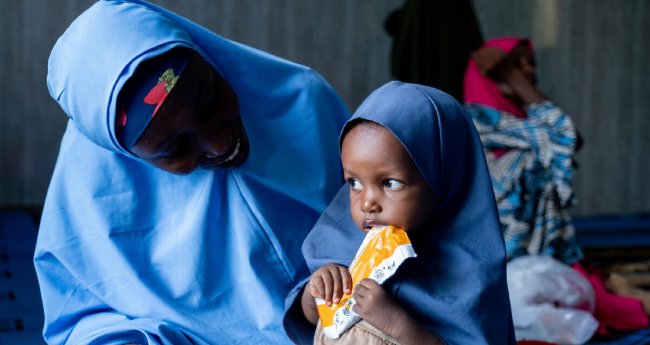THE United Nations World Food Programme (WFP) has announced that it will suspend all emergency food and nutrition assistance for 1.3 million people in northeast Nigeria at the end of July due to a critical funding shortfall.
In a statement released on Thursday made available to News Point Nigeria, July 24, the WFP revealed that its food stocks have been completely depleted, with the last supplies leaving warehouses in early July.
Once the current distribution cycle ends, lifesaving aid will cease, affecting millions across the conflict-affected region.
“This is no longer just a humanitarian crisis; it’s a growing threat to regional stability,” said David Stevenson, WFP Country Director for Nigeria. “Families pushed beyond their limits are left with nowhere to turn.”
The agency stressed that the situation comes amid rising insecurity, ongoing violent insurgencies, and a record 31 million Nigerians facing acute hunger.
The looming shutdown will also force over 150 nutrition clinics in Borno and Yobe States to close, cutting off access to lifesaving treatment for more than 300,000 children under age two.
These children will now be at increased risk of malnutrition and wasting, WFP warned.
Ongoing violence by extremist groups continues to fuel mass displacement, with 2.3 million people across the Lake Chad Basin already uprooted from their homes.
The WFP warned that many may now be forced to migrate in search of food and safety or turn to insurgent groups as a last resort.
“Food assistance can often prevent these outcomes,” said Stevenson. “It allows us to feed families, rebuild livelihoods, and support long-term recovery.”
The WFP said it had managed to reach 1.3 million people in the first half of 2025, and was planning to support an additional 720,000 in the second half of the year.
However, the effort has now been derailed by a $130 million funding gap, threatening the suspension of vital programmes.
“WFP has the capacity to scale its humanitarian response,” the statement added, “but the current funding gap is paralyzing our operations.”
The organisation is now urgently appealing to international donors to help prevent a total collapse of humanitarian operations in northeast Nigeria, and to protect the lives of millions at risk of hunger and malnutrition.







